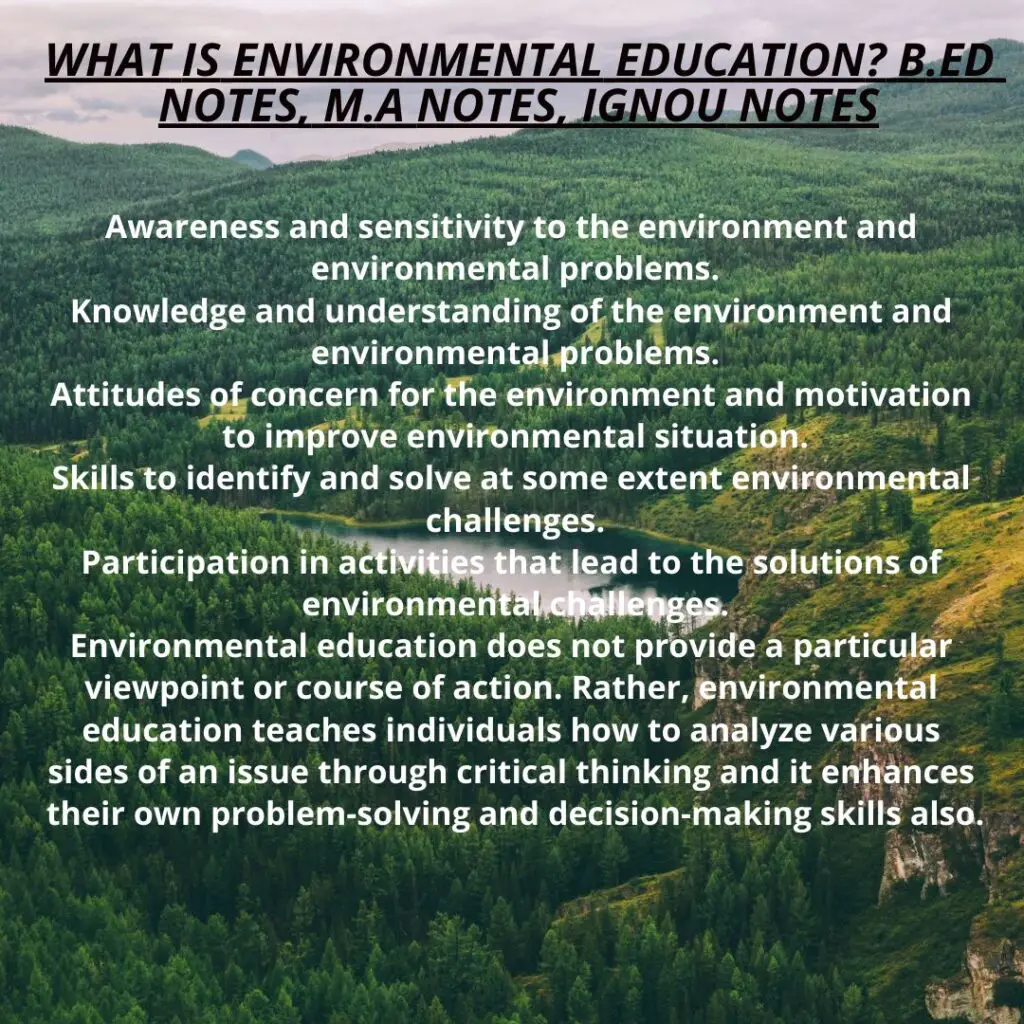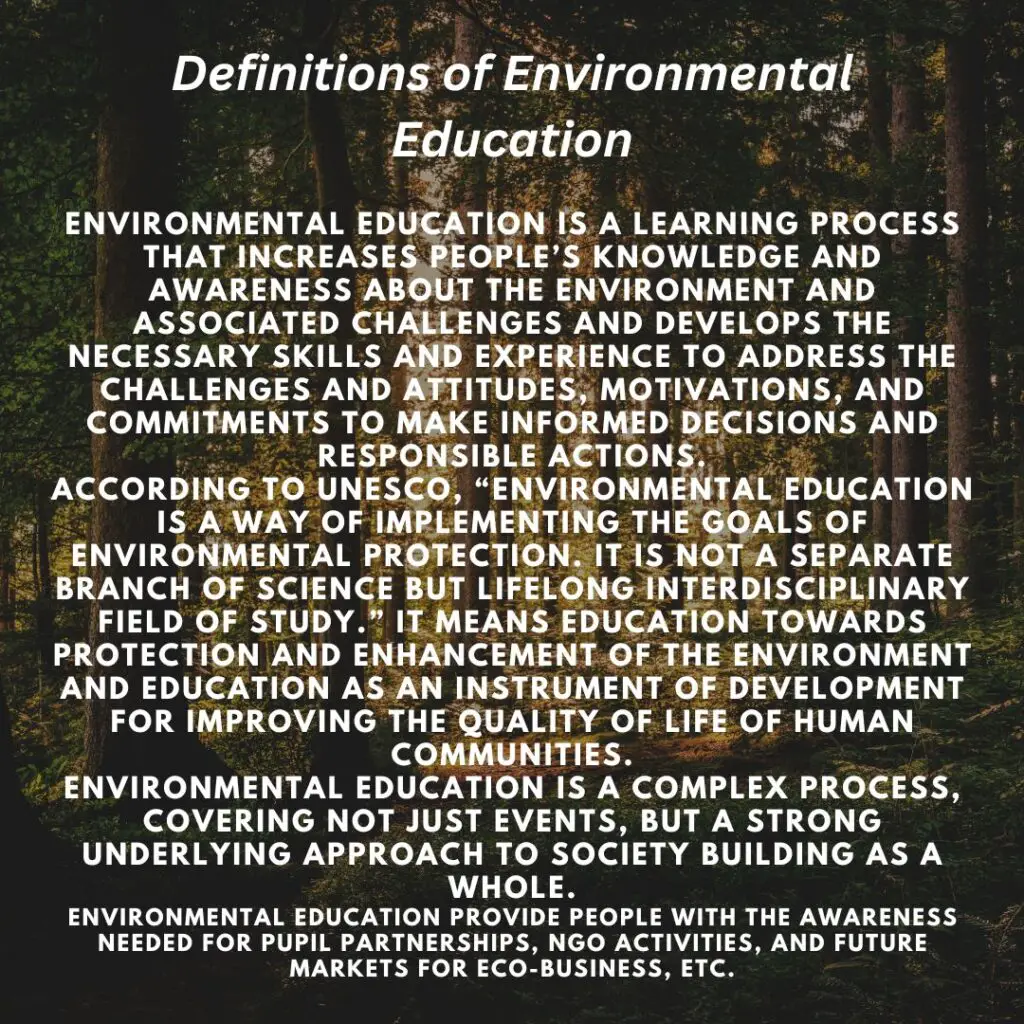Back to: What is Environmental Education? B.ed Notes, M.A Notes, IGNOU Notes
The pursuit of sustainable development and environmental conservation policies, objectives, and targets require the public concern about the multiple dimensions of environment and development.
Awareness and understanding of environmental issues provide the basis and rationals for commitment and meaningful actions toward force adopting a range of strategies for implementation such as policies and programs.
The environment is defined as the total of land, air, water, and the interrelationship that exists among them and with the human beings other living organisms, and materials. The environment is also called a life-supporting system since it provides all the necessities required for day-to-day life.

Definitions of Environmental Education
- Environmental Education is a learning process that increases people’s knowledge and awareness about the environment and associated challenges and develops the necessary skills and experience to address the challenges and attitudes, motivations, and commitments to make informed decisions and responsible actions.
- According to UNESCO, “Environmental Education is a way of implementing the goals of environmental protection. It is not a separate branch of science but lifelong interdisciplinary field of study.” It means education towards protection and enhancement of the environment and education as an instrument of development for improving the quality of life of human communities.
- Environmental Education is a complex process, covering not just events, but a strong underlying approach to society building as a whole.
- Environmental Education provide people with the awareness needed for pupil partnerships, NGO activities, and future markets for eco-business, etc.
